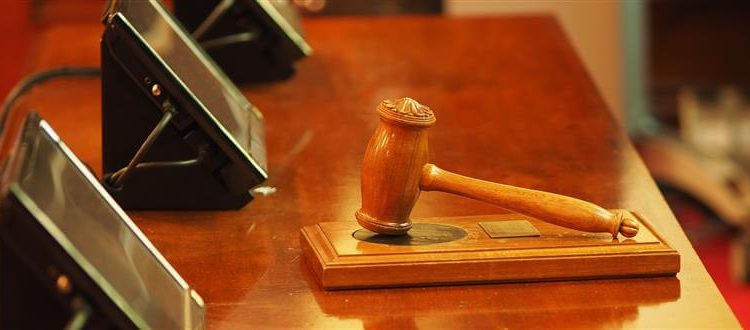ResearchGate Vs. Publishers: The Saga Continues…

ResearchGate is a platform that allows researchers to upload and share their work with others in the community. Termed as an academic social network, ResearchGate is currently embroiled in a battle against publishers, with the latter crying copyright infringement. Due to pressure from a coalition of publishers, including Elsevier and Wiley, ResearchGate is set to take down as many as 7 million papers. These academic publishers want the papers taken down immediately. This group of publishers formed the Coalition for Responsible Sharing. However, their negotiations with ResearchGate failed. The group has now taken formal steps to remedy the illicit hosting of millions of subscription articles.
A Controversial Battle
The most active academic publishers are Elsevier and the American Chemical Society (ACS). These publishers filed a lawsuit against ResearchGate after a larger group of publishers became dissatisfied with ResearchGate’s actions. However, a more substantial group of researchers have expressed their woes. The International Association of Scientific, Technical, and Medical Publishers (STM) wrote a formal statement addressing ResearchGate and representing over 140 publishers. The association asked for a response by September 22. However, a group of five publishers called the Coalition for Responsible Sharing, including the ACS, Elsevier, Brill, Wolters Kluwer, and Wiley asked ResearchGate to take down millions of subscription articles. ResearchGate responded to the group and suggested the publishers send “takedown notices” to remove the copyrighted content. Due to the unfeasibility of such a solution, Elsevier and ACS have gone to court to force ResearchGate to respond.
Facts: What You Need to Know
The ongoing battle between ResearchGate and academic publishers is a recent development in a long history against open access publishing. Academic publishers have been fighting against the availability of subscription content, often available only behind paywalls. In a recent event, Springer Nature and ResearchGate have announced their cooperation and collaboration with each other. ResearchGate and Springer Nature reported serious discussions to find solutions for sharing research articles online while also preserving intellectual property rights at the same time. The details of the saga, however, are more complex:
- ResearchGate has been dubbed as “Facebook for scientists”
- It has over 13 million members and has raised more than $80 M from the Wellcome Trust and Bill Gates, among others
- The coalition of publishers want 7 million articles taken down, or about 40% of the articles in ResearchGate
- Elsevier and the ACS filed a lawsuit against ResearchGate on October 6 in a regional court in Germany
- STM created a proposal on behalf of 140 publishers located in 21 countries asking ResearchGate to stop uploading subscription articles
- STM’s attorney revealed in a September 15 statement its willingness to improve communication with ResearchGate, and that the cooperation is backed by Elsevier.
- According to a statement published on October 10, ResearchGate is already in the process of taking down articles and has removed a “significant number of copyrighted articles”
Key Points
- A large number of researchers make use of ResearchGate because of its easy to use interface
- ResearchGate removes the hassle of journal authentication systems
- In addition, it uses an aggressive email marketing system
- The platform is a form of open access, and a majority of academics will admit that it forms a large part of their research
- A sample of 500 papers from ResearchGate revealed that 392 articles are not open access articles, which shows how rampant the article sharing is
- A spokesperson for ResearchGate in Berlin stated that they ask academics to comply with the publishers’ policies and ensure that they are not breaching copyrights
- However, ResearchGate has no way to monitor whether papers are uploaded illegally
- The Coalition for Responsible Sharing is fighting hard against copyright infringement
- Elsevier has also sued SciHub, an open-access site similar to ResearchGate
The Ripple Effect
So what effect will this have on the academic publishing community? The fight between academic publishers and ResearchGate isn’t over. Let’s see what we can expect:
- Academic publishers have come up with different models for “fair sharing” aimed at identifying instances of copyright infringement
- Exploring the extent of ResearchGate’s liability and responsibility in copyright infringement will be a problem that courts will have to assess
- The dispute also puts into light major disruptions in the academic community, bringing it closer to open access and fair sharing
- Researchers are exceedingly embracing Green Open Access by uploading their papers to websites or even personal sites
- Elsevier will have to continue its battle in order to ensure that it retains paywalls
- The result of these legal battles is that one party may concede, and it will likely be ResearchGate, in the same tune as SciHub.
When it comes to research article publication, networks for open access publishing are cropping up. SciHub, ResearchGate, and even Academia.edu are becoming targets for academic publishing companies. The future of academic publishing rests on these cases and on court decisions.








Interesting article. I am a also a member of ResearchGate online. It has been a fantastically helpful site. However, the saga between CRS and ResearchGate should result in good Ripple Effects. Thanks
The article is interesting. The outcome will go a long way in shaping the models to be adopted in academic publishing in the near future.